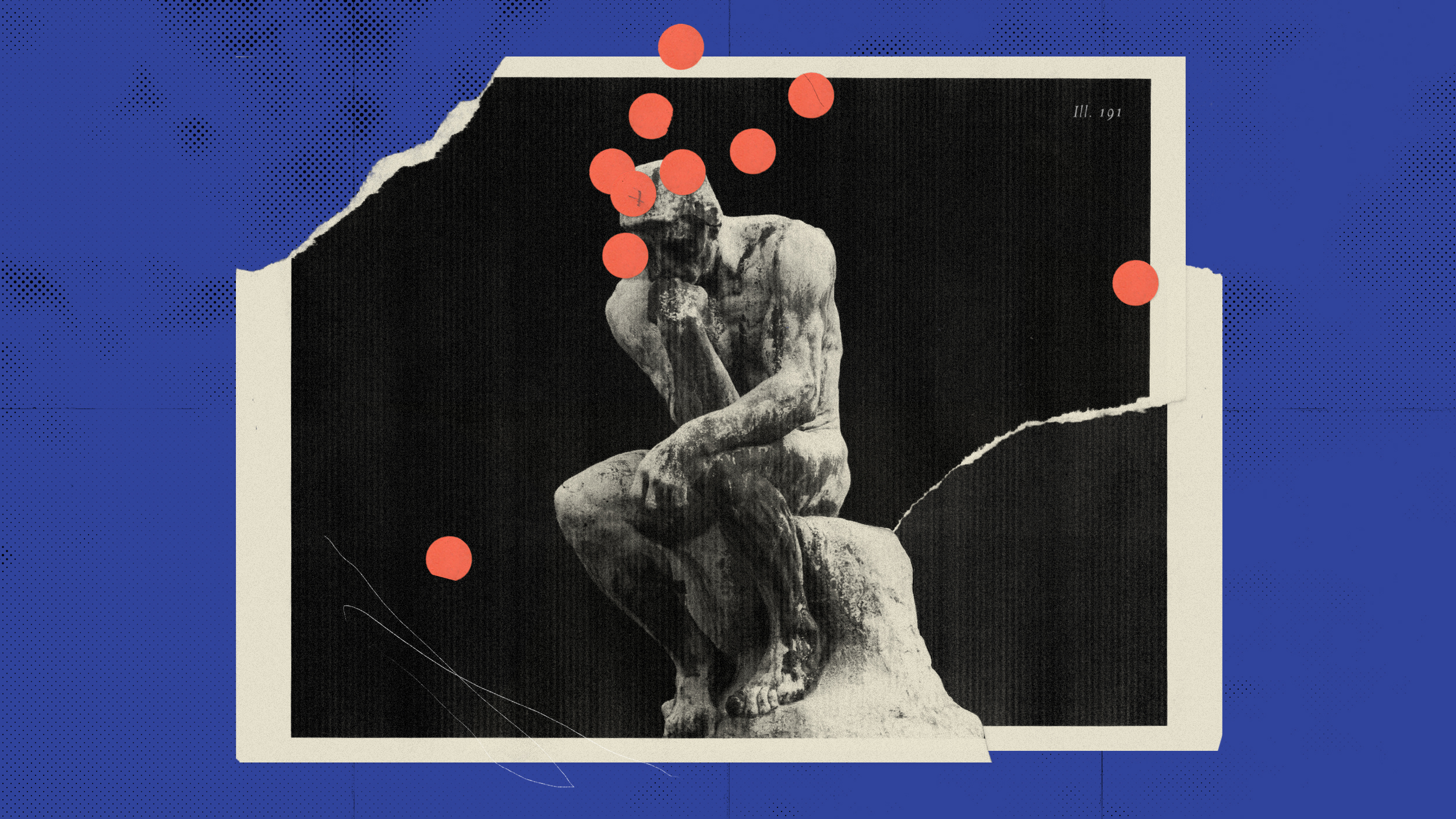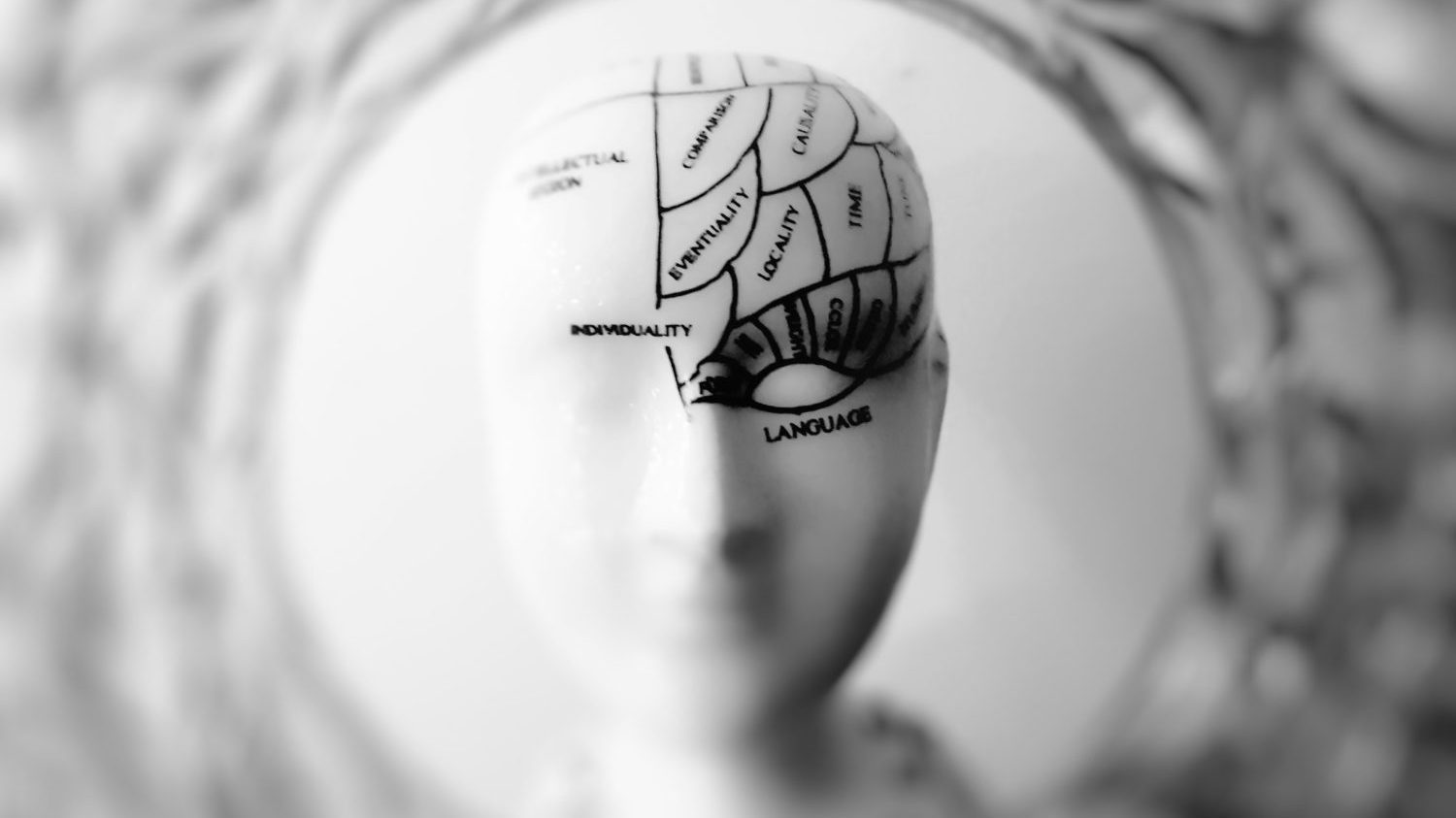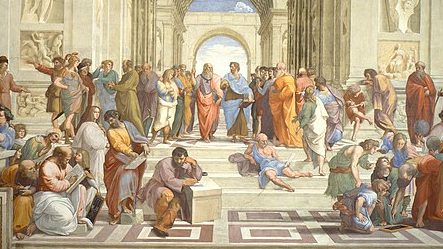10 great ideas in philosophy from the past 50 years, according to one scientist

I am a medical doctor and infectious disease scientist at the University of Washington, but I have long had an interest in philosophy. This goes back to my undergrad days at MIT, 50 years ago, where we were required to study various liberal arts. I ended up getting a minor in philosophy.
I have spent much of the past few years studying COVID, so it has been a nice mental break to ponder greater things once again. In this essay, I discuss what I believe to be ten of the most impactful philosophers and their ideas from the past 50 years.

#1. John Rawls: Rational and political justice
Working during 1970-1997,John Rawls developed the principles and practice of rational and political justice. In 1993, Rawls wrote the Law of the Peoples, developing a political system of justice that applies to international law, relations, and practice. He wrote of “Peoples,” rather than States, because he wanted to find what was common or fundamental to the laws of all “well-constructed” societies. The term “Peoples” refers to the people who interact in these societies. These “Peoples” have three basic characteristics: (1) a just and constitutional democratic government that serves their fundamental interest; (2) citizens united by common sympathies; and (3) a moral nature. He put forth the following eight principles of justice among free and democratic peoples:
- Peoples are free and independent, and these attributes are to be respected by others.
- Peoples are to observe treaties and undertakings.
- Peoples are equal and are parties to agreements that bind them.
- Peoples are to observe a duty of non-intervention.
- Peoples have the right of self-defense but no right to instigate war for reasons other than self-defense.
- Peoples are to honor human rights.
- Peoples are to observe certain specified restrictions in the conduct of war.
- Peoples have a duty to assist other peoples living under unfavorableconditions that prevent their having a just or decent political and social regime.
In his book, Rawls expounds on each of the principles and gives examples of how they should be applied, but one principle was deeply personal for him. Rawls had been to Japan just after World War II and had seen the devastation of the atomic bombs. In principle 7, about restrictions for the conduct of war, he argues that such an “atomic bomb” attack on civilians cannot be “just.” He said the argument that many American lives were saved was not justified by the more than 130,000 civilians that were killed in Nagasaki and Hiroshima. Such a statement fails to see the special protections we should apply to civilians during wartime. It also denigrates the value of Japanese lives as less valuable than American ones. Such reasoning speaks to nationalistic impulses that our lives are more valuable than their lives. Unfortunately, similar faulty reasoning is seen in Russia’s invasion of Ukraine, justifying the targeting of Ukrainian civilians.

#2. Julia Kristeva: Feminist justice
Julia Kristeva brought forth her ideas on feminist justice from the 1960s to 2009, but first a little background on feminism. Simone de Beauvoir was an existentialist philosopher who preceded Kristeva. Beauvoir developed ideas of establishing an authentic existence within feminism in her 1949 book The Second Sex. Beauvoir states, “One is not born, but becomes a woman,” meaning that one only fully becomes a woman by choosing and living an authentic feminist existence, extending Jean-Paul Sartre’s existentialism to feminism. Beauvoir initiated the idea that women must free themselves from the concept that they should be like men. Kristeva refined these concepts and wrote that feminists seeking to fight the “power principle” of a male dominated world are at risk of adopting another form of the “power principle.” If this happens, Kristeva argues feminism risks turning into little more than an additional strand in the ongoing grab for power.
Overall, Kristeva argues that feminist justice will not be well served by that reach for power, and that we need new ways to achieve feminist justice. She wrote that feminism must lead a revolution to allow gender justice, for example access to contraception and abortion. In response to the recent Dobbs Supreme Court decision, we are observing feminist revolutionary actions that impacted the outcome of the 2022 midterm election and will continue to impact state legislatures.

#3. Peter Singer: Animal rights
Peter Singer is a philosopher who used utilitarianism to explain “animal rights” in his 1975 book, Animal Liberation. Singer embraces the utilitarian ethics of Jeremy Bentham of the 18th century, that maximizing pleasure and minimizing pain should guide our ethical behavior. Singer goes on to say that these ethical utilitarian principles also should be applied to animals. Singer points out that avoidance of creating pain is an important concept in utilitarian ethics. Pain is pain, he says, whether it’s your pain, or another human’s, or even an animal’s. The extent to which non-human animals can perceive pain should inform our decisions that affect their lives, and we should refrain from activities that cause such pain. It has become increasingly clear, in the last 100 years, that many animals are sentient beings. Singer says he doesn’t mean that animal experimentation or food-use can never be justified, but simply that we must judge all actions by the consequences to all sentient beings.

#4. Jerry Fodor: Mentalese
In his 1975 bookThe Language of Thought, Jerry Fodor proposed a new universal language: Mentalese, a language of symbolic thought. He proposed that all humans use a symbolic language in our conscious thinking that is separate from verbal language. He further proposed that we are all born fluent in this language of thought. While you may think that you are thinking in English or French or whatever your native language is, Fodor proposed that we map Mentalese onto our mother tongue and thus are unaware that we are thinking symbolically. Mentalese could explain why newborns and infants demonstrate thinking through actions, even though they cannot use language yet. Fodor’s idea is central to the representational theory of mind, which is now a key reference point for modern philosophy, psychology, and cognitive science.

#5. Richard Dawkins: Memes
Richard Dawkins is a philosopher of science, who created the iconic idea of a “meme.” Dawkins is perhaps better known as a biologist and theoretician, who explains modern science in accessible books and essays. In his 1976 book, The Selfish Gene, Dawkins developed the idea that genes are basically wired to be “selfish” to be certain that they are replicated. This, according to Dawkins, ends up in the individual organism being selfish to assure its replication. He points out how a lot of animal and human behavior supports the propagation of the specific individual, and in the end, the “selfish” gene.
He further explains how he thinks behavior that could be considered altruistic, or serving the common good, is actually self-serving — namely, that altruism benefits the perpetuation of the gene and the individual. As an example of altruistic behavior, he describes how individual adult antelope sometimes jump in front of lions to deflect attention from the flock. While the lion becomes focused on that particular antelope and thus endangers its life, Dawkins points out that the antelope’s young are probably the main target of the lion, and by deflecting attention, the antelope’s progeny are more likely to get away. Also, the lion is less likely to be successful in bringing down an adult antelope rather than a young one.
“Memetics” was a concept Dawkins first proposed in a “side bar” chapter of The Selfish Gene, to explain something besides genes that becomes self-perpetuating. A meme is an individual cultural unit that becomes self-perpetuating, through a process akin to replication. Meme, which means “to copy” in Greek, is pronounced like “gene.” This pronunciation similarity was not an accident by Dawkins who realized that memes can undergo replication and natural selection much like genes. If a meme perpetuates itself by being passed on, it is successful. It can undergo change or “mutation” which forms natural variants, which may or may not predominate, all much like genes. The more modern version of memes are internet memes; these can be misinformation, interesting ideas, or pointless crazes. But Dawkins’ concept of memes has been adopted widely by our society.

#6. Mary Midgley: Culture is natural
Mary Midgley put forth the idea “culture is natural” in her 1978 book Beast and Men and developed this idea over the next 40 years. Philosophers had argued that human beings altered their “animal nature” through cultural influences that were passed on as learned behaviors, and that’s what made humans unique from animals. This view posited that culture has come about in unnatural ways, through human constructs and doctrines. Midgely challenges this idea, and states that culture develops as part of an organic and evolutionary process in humans and animals. Midgley argues that humans have evolved to be animals who are adept at the development and practice of cultures, as part of natural selection.
Culture allows us to pass on learned behaviors to new generations, which can aid in survival. This is not unique to humans. Passing on learned behavior, or “animal culture,” has been observed in many animals, such as primates, killer whales, and birds. Primates develop learned behaviors that they teach to young to help them adapt, such as snow monkeys in Japan teaching their young that hot volcanic baths are a good way to stay warm in winter. In fact, primates teach a wide variety of things to their young and each other, including food washing and the use of tools. Killer whales teach their young to beach themselves to catch seals and sea lions as prey. They push their young on shore and encourage them to attack their prey. Birds learn songs through interchange with one another, and this becomes a form of animal culture. Scientists have documented regional cultures of bird songs in areas that are isolated, such as islands. For example, a species of bird on one island might have a different group of common songs compared to the same species on another island.
In Midgley’s view, culture is subject to natural laws and natural selection, just like genes. Cultures that enhance human and animal existence are perpetuated. This intersects with the thinking of Richard Dawkins. However, Midgley disagreed with Dawkins about the selfish gene hypothesis as a construct to explain human behavior. Midgley felt that human behavior could not be reduced to selfish-driven motivations. In her 2010 book, The Solitary Self: Darwin and the Selfish Gene, she argues that the “selfish gene” construct in some cases may be useful but is not well suited to explain human behavior. She argues “heroic independence” of the individual, as part of the “selfish gene” hypothesis, is not a realistic observation of humankind. Midgley states humans “interact constantly with one another and with the complex ecosystems of which we are a tiny part. For us, bonds are not just restraints but also lifelines.” This is where culture and interdependence become something that is particularly developed and natural to humankind.

#7. Jean-François Lyotard: Postmodernism
Jean-François Lyotard developed his idea of “postmodernism” in his 1979 book The Postmodern Condition: A Report into Knowledge. Modern society of the pre-1970s, according to Lyotard, had thrown out superstition and was built on reason and evidence. Modern persons were said to improve by accruing knowledge into their own consciousness and using stories to explain this knowledge. Postmodernism is Lyotard’s idea that no longer could reason sum up the human condition through such a series of explanations, or “meta-narratives,” which are overarching constructs to sum up all of knowledge and human history into one framework.
An example of a meta-narrative could be Marxism, for instance, that tries to explain all evil through capitalism, offering communism as the answer to the evil of capitalism. Lyotard says that we are developing a new skepticism toward unifying meta-narratives. In fact, we all have different perspectives, and the “micronarratives” of different individuals are important. Lyotard argues that the new skepticism of modernism is driven by the explosion of knowledge that has occurred since the mid-20th century.
Information is much more complicated than could be contained and analyzed in one human brain. This led to a shift in the way we value knowledge, in that it cannot be known by every individual but rather it must be stored and shared. This ushered in the value of computers, and computational storage of data and knowledge, and artificial intelligence to explain complex systems. Lyotard noted that knowledge has become “externalized,” stored in databases, moved about, and bought and sold. This led to Lyotard’s concept of the “mercantilization” of knowledge. Lyotard had the foresight to warn in the 1980s that when knowledge became a commodity, to be bought and sold, that private corporations could control our flow of knowledge to shape human thought. This was well before corporations such as Google, Twitter, and Facebook (Meta) started to do exactly what he predicted: control the flow of knowledge, and shape and control the course of human thought.

#8. Henry Oruka: African sage philosophy
In his 1990 book entitled Sage Philosophy: Indigenous Thinkers and Modern Debate on African Philosophy, Henry Orukachallenged the universality of Western philosophy that is bound to European roots and ideas. Oruka studied “sages” in traditional Kenyan societies for more than 20 years. In defining a sage, in a philosophical sense, Oruka did not mean a soothsayer or fortuneteller. Rather, by sage, Oruka meant a person who was “consistently concerned with fundamental ethical and empirical issues and questions relevant to the society” and who had the “ability to offer insightful solutions to some of those issues.”
Oruka challenged African sages in the community to explain their claims and their solutions. Oruka found a rational basis for the African oral belief systems that was the equal of established written philosophical systems. He held that philosophical systems need not be written systems, and the word-of-mouth systems of African sages led to good philosophical values. Western and Eastern philosophical thought is well known to us because it is preserved in written form. Oruka showed that the African oral tradition was being ignored, even derided as steeped in ignorance or animism. In contrast, sage philosophy is rich, complex, rational thinking about the nature of God, and what is meant by freedom and justice. Thus, these African sage philosophies should be considered, along with Western and Eastern philosophy, in the context of great philosophical discourse.

#9. Richard Rorty: Politics should shape philosophy
Working in the late 1990s, Richard Rorty described the“post-philosophical society.” He called himself an antifoundational philosopher, who rejected the rational foundations of philosophy. He felt that the rational approach to political and moral philosophy would fail. He argued the study of history was the best approach to predict the most moral way forward. Rorty rejected philosophical arguments to shape politics but said that politics should shape philosophy. He said that if “we take care of freedom, truth will take care of itself.” He stated that the only grounding a liberal democracy needs is a shared commitment to reduce cruelty and suffering.
Rorty is the philosopher often credited with predicting the 2016 election and the emergence of Donald Trump. In his 1998 book Achieving our Country, Rorty described the existing forces of American politics that could set us on a course toward nationalism. He noted that a considerable swath of the U.S. had suffered from globalism. He further noted that neither conservatives nor liberals had taken up the cause of those suffering from globalism. He predicted that those suffering from globalism would start looking for a populist “strongman” who would pay homage to their fears and roll back the progressive agenda of the previous decades, thus predicting Trump’s ascension to power.

#10. James Lovelock: Gaia hypothesis
In his 1979 book Gaia: A New Look at Life on Earth, James Lovelock stated the “Gaia hypothesis,” in which planet Earth acts as a single self-regulatory unit made up of myriad interactions between living and non-living things, almost like a living body or organism. Gaia is the Greek goddess personifying Earth, hence the name. Some scientists argue that Lovelock has created a religion, rather than a scientific hypothesis. However, many experts disagree. Andrew Watson, a marine and atmospheric scientist, said, “The insight that the oceans and the atmosphere are thoroughly entwined with the living biosphere, and must be understood as a coupled system, has been completely vindicated.” Lee Kump, a geoscientist, said, “Lovelock also showed us that Darwin had it only half right. Life evolves in response to environmental change, but the environment also evolves in response to biological change.”
Gaia adherents argue that modern civilization is disrupting the balance of Earth, and that we should ensure the planet can continue to regulate itself. Otherwise, if humanity persists to destabilize the biosphere, the Gaia hypothesis suggests that humanity will be “regulated” by Earth’s ecosystem. Lovelock’s most recent book, Novacene: The Coming Age of Hyperintelligence, suggests that cyborgs and artificial intelligence will save the Earth by understanding the biosphere and regulating it. Fortunately, Lovelock predicts cyborgs and AI will understand that humanity is an important part of the biosphere, so ultimately their actions will retain humanity as well.
Philosophy is alive and well
Reflecting on the past 50 years, I see that philosophy is not a “dead” pursuit that focuses on old ideas, but rather a field in which new and important concepts are being continuously put forth and actively debated. All of us can learn from it.
This article was adapted from an essay written by Dr. Wes Van Voorhis, which is now archived at Suzzallo Library’s Special Collections at the University of Washington.





